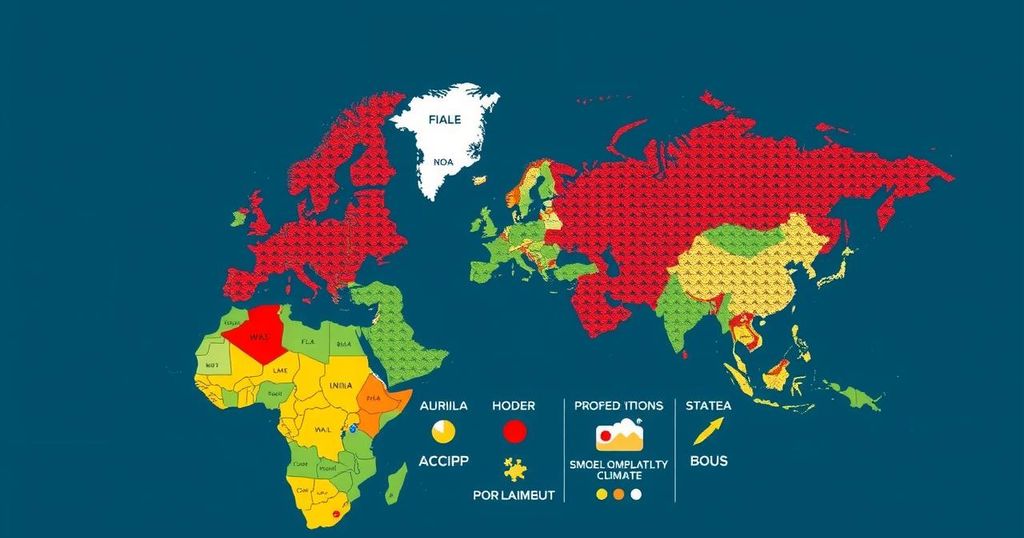Delegates from Developing Nations Walk Out of COP29 Over Insufficient Climate Funding

Developing nations walked out of COP29 negotiations in protest over a proposed climate funding deal that promised $250 billion annually by 2035, far below the $1 trillion experts say is needed. Delegates expressed feelings of being marginalized in discussions aimed at addressing climate change, with Sierra Leone’s environment minister stating that poorer countries are being “ignored.”
At the recent COP29 climate summit, a group of delegates from developing nations walked out in protest against a proposed draft deal that they deemed insufficient. The draft aimed to secure $250 billion annually by 2035 to assist the least developed nations in addressing the impacts of climate change. However, this figure is still significantly below the estimated $1 trillion required annually, eliciting strong disappointment among the poorer nations. Sierra Leone’s environment minister expressed that the concerns of economically disadvantaged countries were being overlooked during the negotiations.
The ongoing climate crisis disproportionately affects nations with fewer resources, making financial assistance critical for their survival and adaptation efforts. At previous climate summits, commitments have been made to allocate funding, but these have often fallen short of the needs outlined by experts and those directly impacted by climate change. The latest proposed funding at COP29, while an improvement over past promises, still lacks the scale necessary to make a significant impact amidst escalating climate threats.
The walkout by delegates from climate-vulnerable states at COP29 underscores the urgent need for a more substantial commitment to combating climate change. The proposed funding, though an increase from previous pledges, remains grossly inadequate relative to the severe challenges faced by disadvantaged nations. For effective climate action, it is imperative that global leaders recognize and address the real needs of these vulnerable populations.
Original Source: www.independent.co.uk







